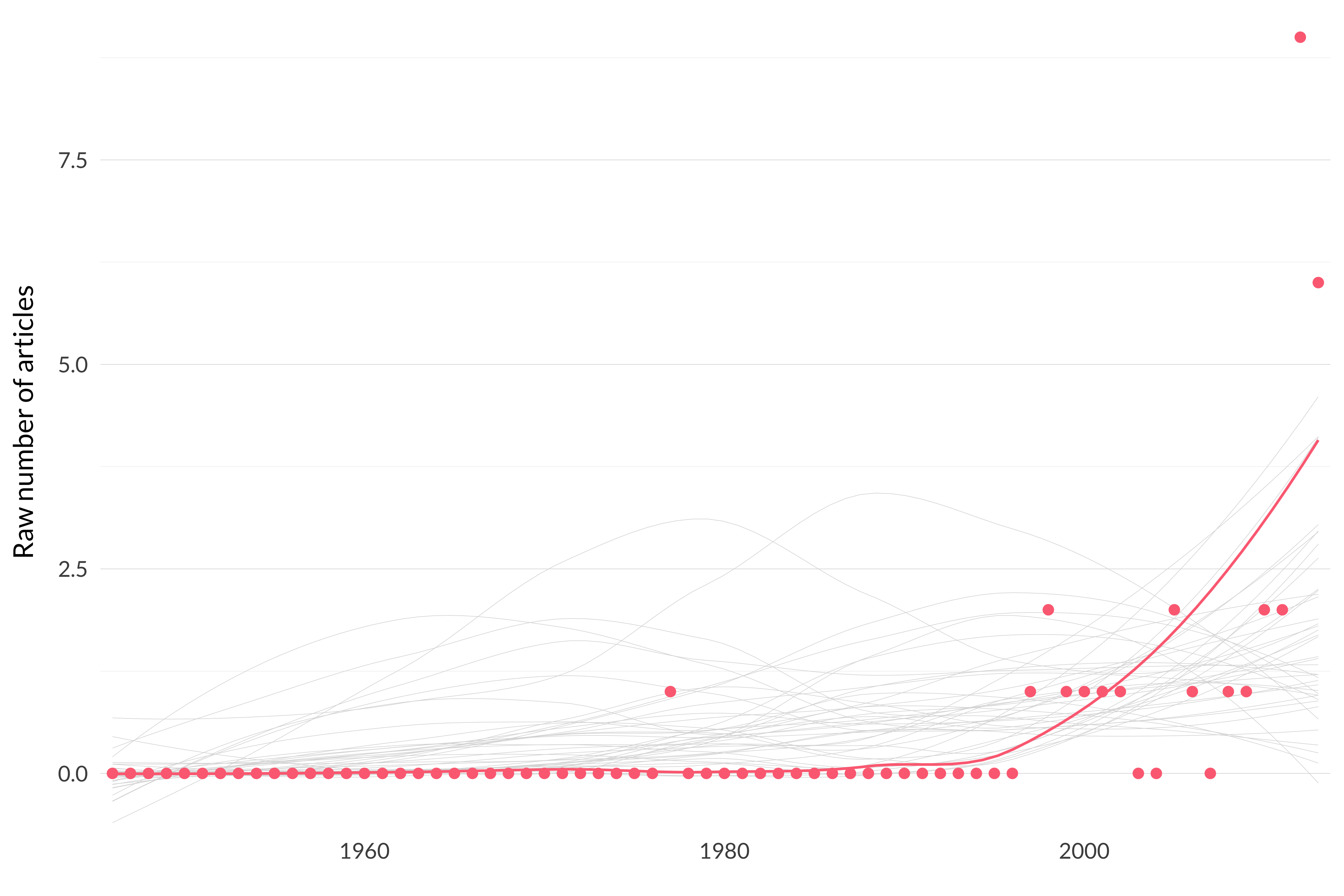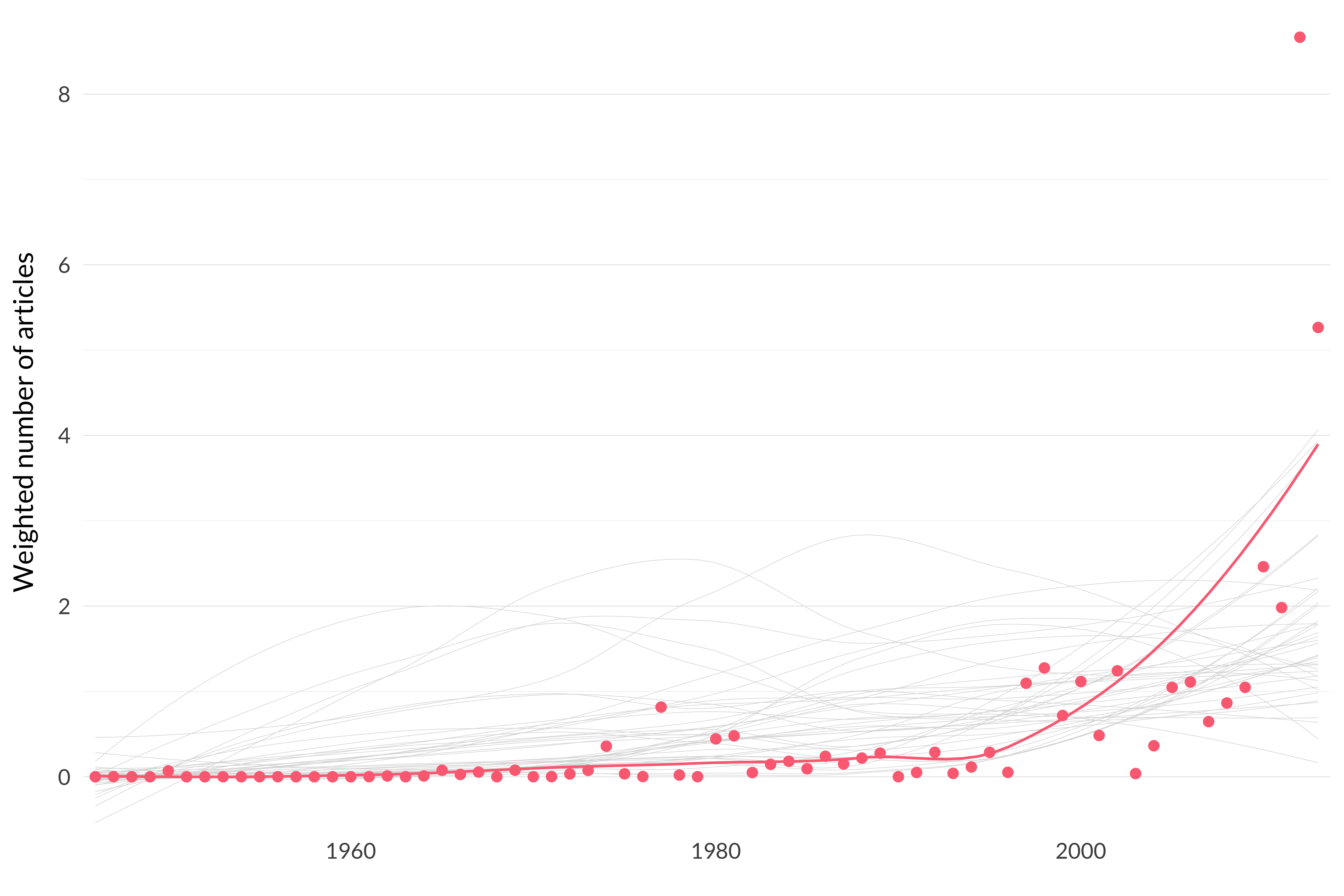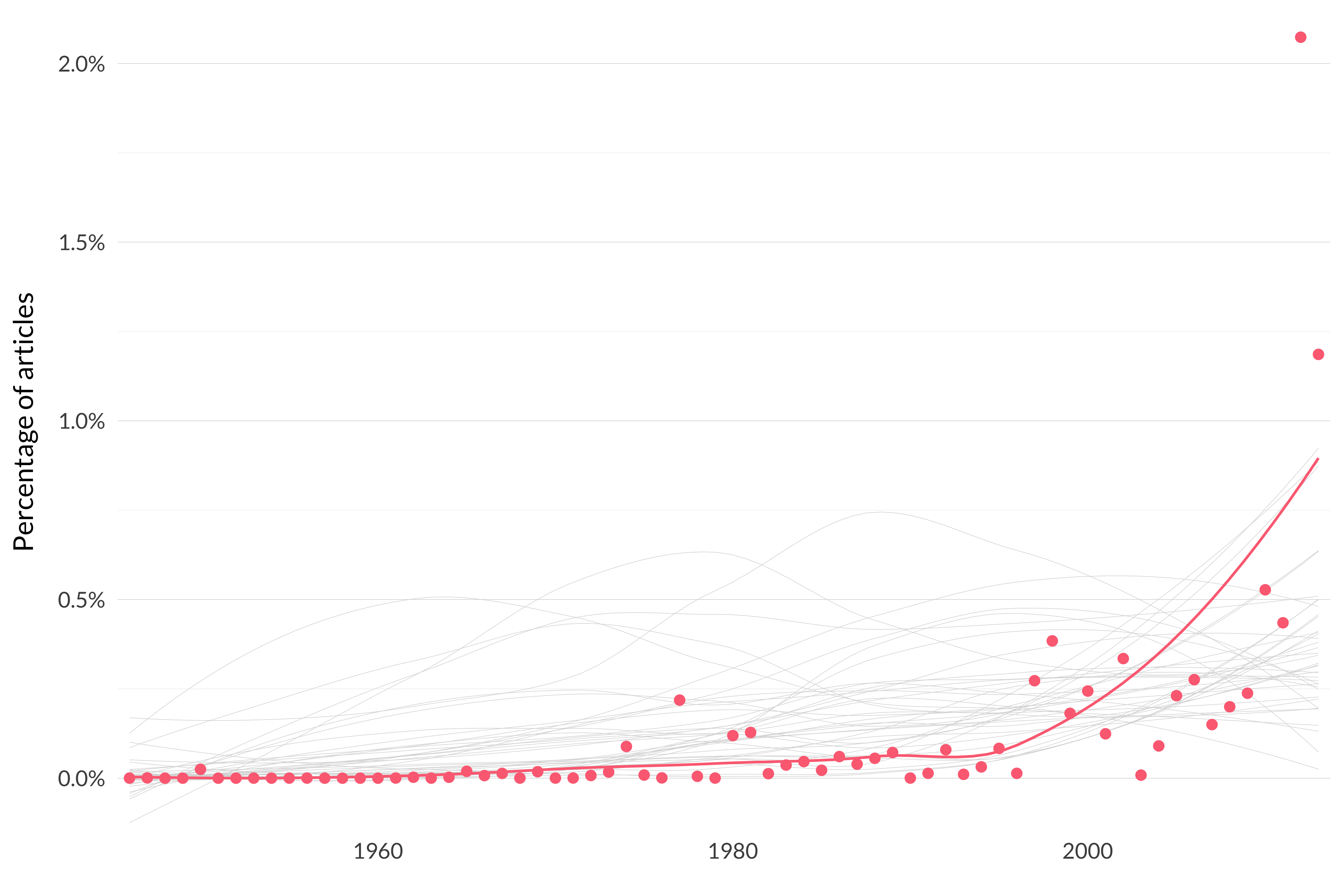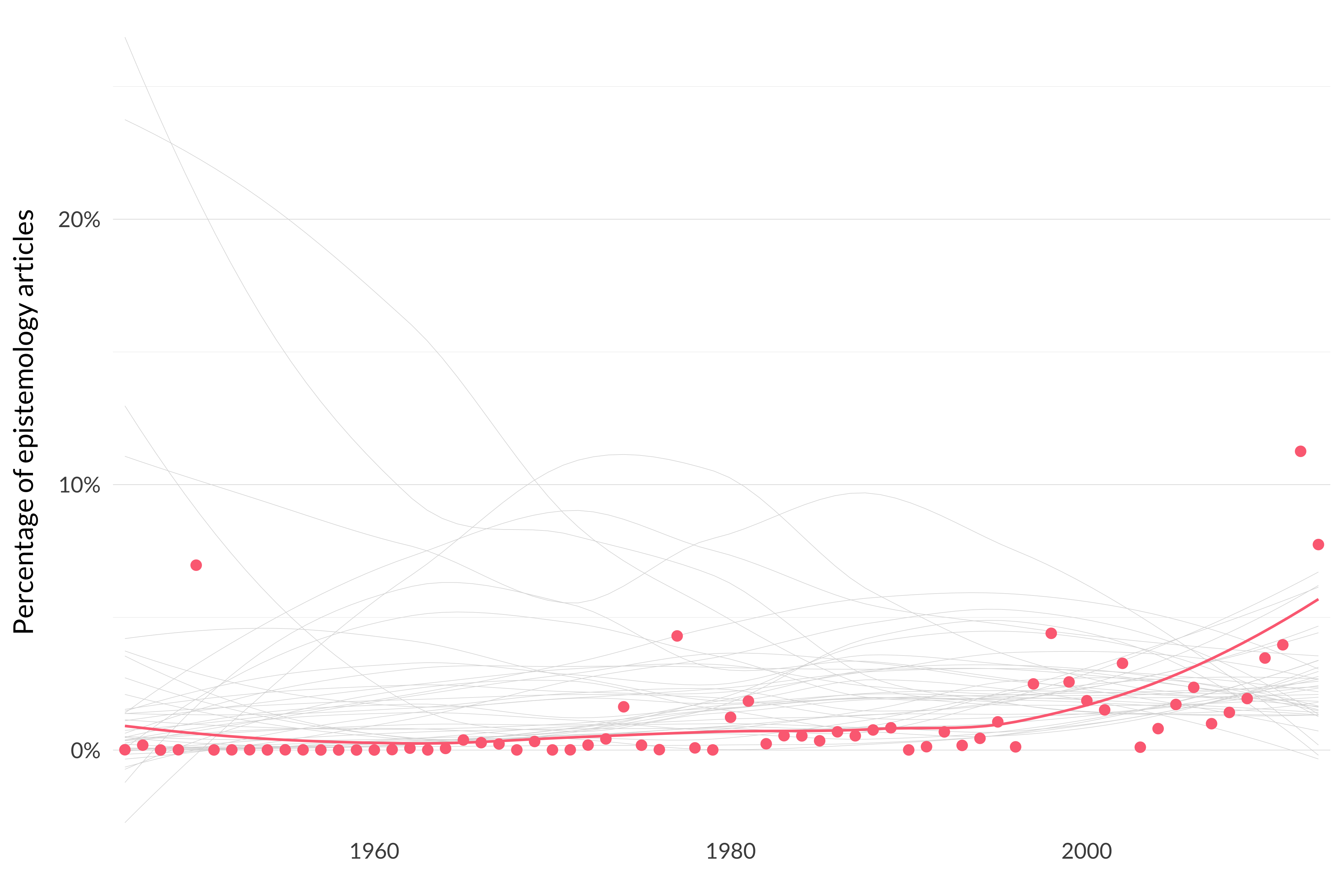6.40 Accuracy
Keywords: inaccuracy, utility, expected, credence, credences, global, measure, functions, function, agent, conditionalization, tree, reflection, constraints, agents
Number of articles: 32
Weighted number of articles: 34.37435

Figure 6.165: Raw number of articles in topic 40, accuracy.

Figure 6.166: Weighted number of articles in topic 40, accuracy.

Figure 6.167: Percentage of philosophy articles in topic 40, accuracy.

Figure 6.168: Percentage of epistemology articles in topic 40, accuracy.
Characteristic Articles
- Patrick Maher, 2002, “Joyce’s Argument for Probabilism,” Philosophy of Science 69:73–81.
- Anna Mahtani, 2012, “Diachronic Dutch Book Arguments,” Philosophical Review 121:443–50.
- Benjamin Anders Levinstein, 2012, “Leitgeb and Pettigrew on Accuracy and Updating,” Philosophy of Science 79:413–24.
- Branden Fitelson, 2012, “Accuracy, Language Dependence, and Joyce’s Argument for Probabilism,” Philosophy of Science 79:167–74.
- Sarah Moss, 2011, “Scoring Rules and Epistemic Compromise,” Mind 120:1053–69.
- Hannes Leitgeb and Richard Pettigrew, 2010, “An Objective Justification of Bayesianism Ii: The Consequences of Minimizing Inaccuracy,” Philosophy of Science 77:236–72.
- Kenny Easwaran, 2013, “Expected Accuracy Supports Conditionalization—And Conglomerability and Reflection,” Philosophy of Science 80:119–42.
- Hilary Greaves and David Wallace, 2006, “Justifying Conditionalization: Conditionalization Maximizes Expected Epistemic Utility,” Mind 115:607–32.
- Hannes Leitgeb and Richard Pettigrew, 2010, “An Objective Justification of Bayesianism I: Measuring Inaccuracy,” Philosophy of Science 77:201–35.
- Richard Pettigrew, 2012, “Accuracy, Chance, and the Principal Principle,” Philosophical Review 121:241–75.
Highly Cited Articles
- James M. Joyce, 1998, “A Nonpragmatic Vindication of Probabilism,” Philosophy of Science 65:575–603. (0.4809241)